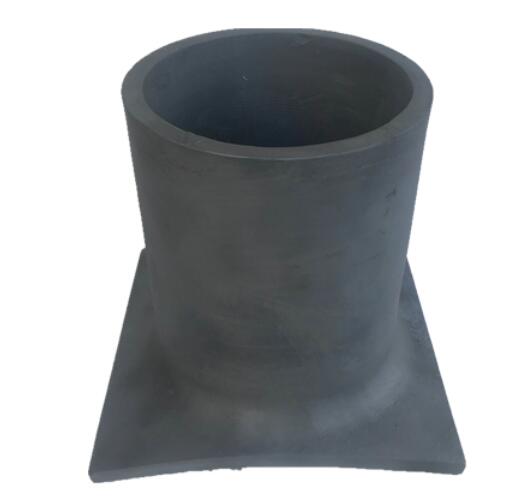


1. Good Oxidation resistance
2. Excellent Corrosion resistance
3. High temperature tolerance
4. Perfect Bending strength
Silicon carbide cone pipe lining for pulverized coal powder conveying Property:
◊ Superior wear resistance, impact resistance and corrosion resistance
◊ Excellent flatness and temperature resistance up to 1380℃
◊ Excellent oxidation resistance
◊ Good dimensional control of complex shapes
◊ Easy installation
◊ Longer service life ( about 5 times more than that of alumina ceramic and 6 times more than that of polyurethane)
Inquiry
|
Silicon carbide SiC ceramic insert for abrasive ores
1. Technical parameters of reaction bonded silicon carbide RBSIC :
Silicon carbide SIC ceramic liner / insert for cyclone with high strength,high wear resistantce are widely used in papermaking, chemical, electronics, pharmaceutical and other ink jet, lithium battery materials, electronic pulp nano-ceramic sanding machines.
2.Silicon carbide SIC ceramic liner / insert for cyclone Property:
◊ Superior wear resistance, impact resistance and corrosion resistance
◊ Excellent flatness and temperature resistance up to 1380℃
◊ Excellent oxidation resistance
◊ Good dimensional control of complex shapes
◊ Easy installation
◊ Longer service life ( about 5 times more than that of alumina ceramic and 6 times more than that of polyurethane)
The reaction bonded silicion carbide ceramic ( RBSIC) is an ideal wear resistant material, which is especially suitable for the strong abrasive, coarse particles, classification, concentration, dehydration and other operations. Due to the above properties, the reaction bonded silicon carbide RBSIC wear resistant ceramic tubes can effectively protect the part from high wear so as to prolong the service life of the equipment.
3. Specification of Silicon carbide SIC ceramic liner / insert for cyclone
Thickness available: 6mm - 25mm
Shape available: screw, plain plate, straight pipe, tee pipes, ring, elbow, cone cyclone and so on.
Remark: Other sizes and shape are available upon requests.
4. Main Application
The main products of reaction bonded silicon carbide ceramics are: cross beams, rollers, cooling air pipe,burner nozzles,thermocouple protecting tubes,temperature measuring parts, radiant tubes, desulfurization nozzles, crucible,batts, wear resistant lining materials,plates, seals, rings and special shaped structural parts.
· Structural ceramics– These materials are engineered for high strength, thermal shock, and chemical resistance. They also exhibit excellent hardness and resistance to oxidation, corrosion, and wear. Such properties make them suitable for unfriendly environments. Some of the widely used structural ceramics include silicon carbide ceramics, silicon nitride ceramics, and alumina ceramics.
· Tool ceramics– These materials are used in the production of industrial goods, kitchenware, cookware, and tableware. The most popular types of tool ceramics include diamond (naturally occurring form), cemented carbide, cubic boron nitride, etc.
· Functionality ceramics– These materials are created to have electro-optical properties like LEDs or lasers. They vary depending on the different physical properties that in turn make them useful for specific functions. In the case of optical ceramics, the materials exhibit high amounts of transparency, luminescence, fluorescence, and electrochromic effects. Examples include silicon dioxide, tungsten trioxide, and cadmium telluride. Functionality ceramics can further be divided into magnetic, semiconductor, and dielectric.
Email:masonvicky skype:masonvicky













